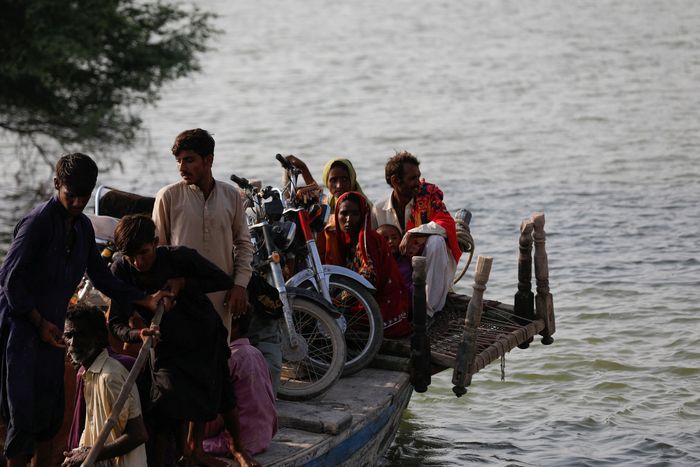ISLAMABAD, Pakistan—Recent catastrophic floods will wipe out economic growth and cause acute food shortages in Pakistan, officials warned, threatening anew to push a country already reeling from economic and political instability into default.
Pakistan was looking to an International Monetary Fund bailout it secured last month and a package of global loan rollovers and investments to help restore finances hit hard by the price shocks caused by the Ukraine war. But plans to regain financial health have been upended by monsoon rains that hammered the usually arid southern regions of the country with five times more rain than they typically see, wiping out houses, bridges, roads and crops.
Government officials estimate at least $30 billion of economic damage and reconstruction costs, or about 10% of GDP. The figure has tripled from an early estimate last month and officials expect it to rise further. The United Nations Development Program, with the World Bank and Asian Development Bank, expect to complete an assessment of flood damage and reconstruction costs by mid-October.
Domestic resources can only meet a fraction of the government’s estimated cost and the international aid received so far falls far short of the country’s needs. Pakistan is in discussions with the U.N. over holding an international donor conference to raise flood-relief funds.
Flood victims pile onto a boat with their belongings as monsoon rains continue to hit Pakistan.
Photo:
AKHTAR SOOMRO/REUTERS
“The path to solvency was narrow. It has gotten narrower,” said Finance Minister
Miftah Ismail.
Bond and currency markets, which had shown more confidence in Pakistan after the IMF deal, are again pricing in a high risk of the country defaulting on its foreign debt. Since the end of August, the yields on some of the government’s international bonds have jumped by a third, while the currency is one of the worst performing in Asia, down 25% over the past 12 months.
Globally, more countries are deemed to be at a high risk of defaulting, after inflationary…
Click Here to Read the Full Original Article at WSJ.com: World News…

